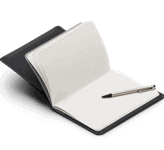 As a student looking for expert help with a lab report, you may find yourself navigating through a complex and intricate world of scientific research and analysis. This technique, pivotal in biochemistry and molecular biology, is employed to separate molecules based on their size, allowing researchers to isolate and study various components of a mixture. The process, while fascinating, demands a deep understanding of both the theoretical principles and practical applications, which can be overwhelming for those new to the field. Gel-filtration chromatography, also known as size-exclusion chromatography, is a powerful method used to analyze proteins, nucleic acids, and other macromolecules. Its significance lies in its ability to provide high-resolution separation, making it indispensable in research and industry. However, mastering this technique requires more than just theoretical knowledge; it involves meticulous preparation, precise execution, and accurate interpretation of results. Writing a lab report on this topic involves not only documenting the experimental procedures and findings but also understanding the underlying principles and effectively communicating the significance of your results. Seeking expert help can make a substantial difference in your academic journey. Professional assistance can provide you with a structured approach to organizing your lab report, ensuring that all critical components are meticulously covered. From writing a compelling introduction that sets the stage for your research to detailing the methodology, presenting results, and discussing their implications, expert guidance can enhance the quality of your work. Additionally, professional support can help you avoid common pitfalls, such as misinterpreting data or omitting crucial details, which can significantly impact the clarity and accuracy of your report. As you delve into the intricate world of gel-filtration chromatography, leveraging expert help can be invaluable. It not only ensures that your lab report is comprehensive and well-structured but also enhances your understanding of this essential technique, paving the way for academic success and future research endeavors. Beyond helping students write lab reports on gel-filtration chromatography, we delve into other areas. We extend our helping hand to provide reliable help with a lab report on bacterial enumeration, microbial cultivation, serial dilution, or membrane filtration among others.
As a student looking for expert help with a lab report, you may find yourself navigating through a complex and intricate world of scientific research and analysis. This technique, pivotal in biochemistry and molecular biology, is employed to separate molecules based on their size, allowing researchers to isolate and study various components of a mixture. The process, while fascinating, demands a deep understanding of both the theoretical principles and practical applications, which can be overwhelming for those new to the field. Gel-filtration chromatography, also known as size-exclusion chromatography, is a powerful method used to analyze proteins, nucleic acids, and other macromolecules. Its significance lies in its ability to provide high-resolution separation, making it indispensable in research and industry. However, mastering this technique requires more than just theoretical knowledge; it involves meticulous preparation, precise execution, and accurate interpretation of results. Writing a lab report on this topic involves not only documenting the experimental procedures and findings but also understanding the underlying principles and effectively communicating the significance of your results. Seeking expert help can make a substantial difference in your academic journey. Professional assistance can provide you with a structured approach to organizing your lab report, ensuring that all critical components are meticulously covered. From writing a compelling introduction that sets the stage for your research to detailing the methodology, presenting results, and discussing their implications, expert guidance can enhance the quality of your work. Additionally, professional support can help you avoid common pitfalls, such as misinterpreting data or omitting crucial details, which can significantly impact the clarity and accuracy of your report. As you delve into the intricate world of gel-filtration chromatography, leveraging expert help can be invaluable. It not only ensures that your lab report is comprehensive and well-structured but also enhances your understanding of this essential technique, paving the way for academic success and future research endeavors. Beyond helping students write lab reports on gel-filtration chromatography, we delve into other areas. We extend our helping hand to provide reliable help with a lab report on bacterial enumeration, microbial cultivation, serial dilution, or membrane filtration among others.
The purpose of preparing a gel-filtration chromatography lab report; expert help
Gel-filtration chromatography, a crucial technique in biochemistry, is widely used for separating proteins, nucleic acids, and other macromolecules based on size. Students encounter this technique in their laboratory coursework, and preparing a detailed lab report is an integral part of the learning process. A well-prepared lab report is not just a documentation of experimental results; it serves multiple purposes, each contributing significantly to a student's academic and professional growth. Due to its purpose, students are prompted to seek gel-filtration chromatography laboratory report writing help. The primary purpose of a chromatography lab report is to communicate the findings and the methodology clearly and concisely. This report serves several key functions:
- Documentation of Experimental Process: A detailed report helps in documenting the step-by-step experimental procedures, making it easier to replicate the experiment. This is essential for verifying results and maintaining scientific rigor.
- Data Analysis and Interpretation: The report provides a platform for analyzing and interpreting the data obtained from the experiment. It involves discussing the results in the context of existing scientific knowledge and theoretical principles, helping students develop critical thinking and analytical skills.
- Enhancement of Writing Skills: Writing a lab report hones a student's ability to present complex scientific information in a clear and structured manner. This skill is invaluable for future scientific writing, whether it be for academic purposes or professional research.
- Assessment and Criticism: Instructors use lab reports to assess a student's understanding of the experimental techniques and their ability to apply theoretical knowledge in practical scenarios. Constructive feedback from these reports helps students improve their laboratory skills and scientific writing.
While the importance of a well-prepared lab report is clear, the process of creating one can be challenging. Seeking help with the write-up can offer several benefits. Expert assistance ensures that the report is written with clarity and precision, effectively communicating the experimental findings and their implications. This is particularly important in complex techniques like gel-filtration chromatography, where detailed explanation and accurate data representation are crucial. More so, laboratory reports involve multiple experiments and assignments. Seeking help with the write-up allows students to manage their time more effectively, balancing laboratory work with other academic responsibilities. Relevantly, a well-structured and meticulously written lab report can significantly enhance a student's grades. We ensure that the report meets the academic standards and requirements, maximizing the chances of achieving a high score. More so, collaborating with experts provides a learning opportunity for students. They can gain insights into advanced writing techniques and better understand the intricacies of gel-filtration chromatography through guided assistance. Preparing a good report is essential for documenting the experimental process, analyzing data, and developing critical scientific skills. Seeking gel-filtration chromatography laboratory report writing help enhances the quality of the report and ultimately leads to better academic performance. For students aiming to excel in their biochemistry coursework, leveraging expert assistance is a valuable strategy to ensure success.
Tips for writing a clear & concise chromatography lab report; professional help
Gel-filtration chromatography is a vital technique in biochemistry, used for separating macromolecules such as proteins and nucleic acids based on their size. Writing a clear and concise lab report on this technique is crucial for effectively communicating your findings and understanding. We provide essential tips for writing a high-quality lab report and why seeking help to write a gel-filtration chromatography lab report shouldn’t be an afterthought.
Tips for Writing a Clear and Concise Lab Report
- Understand the Experiment Thoroughly: Before you start writing, ensure you have a comprehensive understanding of the gel-filtration chromatography experiment. Familiarize yourself with the principles behind the technique, the methodology, and the purpose of each step. This foundational knowledge will help you explain the experiment clearly.
- Follow a Structured Format: Use a standard format for your lab report, typically including the following sections: Title, Abstract, Introduction, Materials and Methods, Results, Discussion, Conclusion, and References. Adhering to this structure ensures your report is organized and easy to follow.
- Write a Clear Abstract: The abstract is a summary of the entire report. It should concisely describe the experiment's purpose, key findings, and main conclusions. Aim to keep it within 150-200 words and ensure it provides a snapshot of the entire report.
- Provide a Detailed Introduction: The introduction should explain the purpose and significance of the experiment. Include relevant background information on gel-filtration chromatography and the specific objectives of your experiment. Clearly state your hypothesis or research question.
- Describe Materials and Methods Accurately: In the Materials and Methods section provide a detailed account of the procedures you followed during the experiment. Include information on the equipment, reagents, and conditions used. This section should be precise enough to allow another researcher to replicate your experiment.
- Present Data-Clearly: The Results section should present your data clearly and concisely. Use tables, graphs, and charts to illustrate your findings. Ensure all figures are labeled correctly and include descriptive captions. Avoid interpreting the data in this section; save that for the Discussion.
- Analyze and Interpret Results: In the Discussion section, interpret your findings in the context of the experiment's objectives and existing scientific knowledge. Discuss any anomalies, potential errors, and the implications of your results. Relate your findings to your hypothesis and suggest future research directions.
- Conclude Succinctly: Summarize your main findings and their significance in the Conclusion section. Keep this part brief and to the point, highlighting the key takeaways from your experiment.
Why is Seeking Help Worth It?
Seeking professional help to write a gel-filtration chromatography lab report can be highly beneficial, especially if you find scientific writing challenging. Here are some reasons why it might be worth considering:
- Need for Expert Guidance: Professional writers or tutors can provide valuable insights and guidance on how to structure and present your report effectively.
- Proper Time Management: Balancing multiple assignments and experiments can be overwhelming. Professional assistance can help you manage your workload more efficiently.
- Quality Improvement: Expert help can enhance the clarity, precision, and overall quality of your report, leading to better grades and deeper understanding.
- A Learning Opportunity: Collaborating with professionals offers a chance to learn advanced writing techniques and improve your scientific communication skills.
Writing a clear and concise gel-filtration chromatography lab report requires a thorough understanding of the experiment, a structured approach, and attention to detail. By following the tips provided, you can effectively communicate your findings. Additionally, seeking professional help can further enhance the quality of your report and provide valuable learning experiences.
How to cite sources in a gel-filtration chromatography lab report; writing guidance
Gel-filtration chromatography is a fundamental technique in biochemistry, used to separate and analyze macromolecules based on their size. Writing a lab report on this technique requires a clear presentation of the experimental process and results and a proper citation of sources and references. Proper citation is crucial for maintaining academic integrity, crediting original authors, and providing readers with the resources to verify information. We explain how students can properly cite sources and references in the report and the benefits of seeking expert guidance on the best way to write a laboratory report on gel-filtration chromatography.
Understanding the Importance of Proper Citation
Proper citation in scientific writing serves several essential purposes:
- Academic Integrity: Proper citation avoids plagiarism by acknowledging the sources of information, ideas, and data.
- Credibility: Citing reputable sources enhances the credibility of your report by demonstrating that your findings are supported by existing scientific literature.
- Resource Verification: It allows readers to locate the sources for further reading and verification, fostering transparency and trust in your work.
Guidelines for Proper Citation in a Lab Report
- Choose the Appropriate Citation Style: Different academic disciplines and journals have specific citation styles. Common styles include APA, MLA, Chicago, and Harvard. Ensure you use the style recommended by your instructor or the journal to which you submit your report.
- Cite All Referenced Information: Any information, data, or ideas that are not your own must be cited. This includes direct quotes, paraphrased content, and any data or theories from other researchers. Failure to do so can lead to unintentional plagiarism.
- Use In-Text Citations: Incorporate in-text citations whenever you reference a source. In-text citations typically include the author's last name and the publication year (e.g., Smith, 2020). For direct quotes, also include the page number (e.g., Smith, 2020, p. 45).
- Create a Reference List: At the end of your lab report, include a comprehensive reference list that provides full details of all sources cited. Each entry should include the author's name, publication year, title of the work, and publication details. The format will vary depending on the citation style used.
- Use Citation Management Tools: Tools like EndNote, Mendeley, and Zotero can help manage your references and automatically format citations and reference lists according to your chosen style.
Seeking Expert Guidance
Expert guidance can significantly improve the quality and accuracy of your citations. Seeking guidance on the best way to write a laboratory report on gel-filtration chromatography can ensure;
- Clarification of Citation Styles: We help you understand the nuances of different citation styles and ensure you are following them correctly.
- Identifying Credible Sources: Our professionals assist in identifying and accessing reputable sources, ensuring that your references are of high quality.
- Avoiding Plagiarism: Our reliable reviewers help in paraphrasing correctly and ensure that all sources are properly cited, reducing the risk of plagiarism.
- Time Management: With our professional help, you can save time on formatting and focus more on the content and analysis of your lab report.
Proper citation is a critical aspect of writing a gel-filtration chromatography lab report. By adhering to the correct citation style, students can maintain academic integrity and enhance the credibility of their work. Seeking expert guidance can provide additional support, ensuring that citations are accurate and comprehensive, ultimately leading to a well-crafted and reliable lab report.
 Writing a lab report on gel-filtration chromatography can be a challenging task for students, requiring a deep understanding of the experimental technique, meticulous attention to detail, and the ability to communicate findings clearly and accurately. At our service, we provide reliable help lab reports on gel-filtration chromatography, ensuring that students can excel in their academic pursuits and gain a thorough understanding of this essential biochemical method. Our expert team is composed of experienced professionals with extensive knowledge in biochemistry and lab report writing. We assist students in every step of the report writing process, from understanding the experimental procedure to analyzing data and presenting findings in a clear, structured manner. With our guidance, students can produce high-quality lab reports that accurately reflect their experimental work and adhere to academic standards. We understand the importance of proper citation and referencing in scientific writing. Our experts ensure that all sources and references are cited correctly, maintaining academic integrity and enhancing the credibility of the lab report. We also provide students with valuable insights into the nuances of different citation styles, helping them avoid common pitfalls and ensuring that their work meets the highest academic standards. Time management is a critical factor for students balancing multiple assignments and laboratory work. By seeking our help, students can efficiently manage their time, focusing on their studies and other responsibilities without compromising the quality of their lab reports. Our service is designed to alleviate the stress associated with report writing, allowing students to achieve their academic goals with confidence. We offer reliable and comprehensive assistance with lab reports. Our expert guidance ensures that students produce well-structured, accurately cited, and high-quality reports that reflect their understanding and hard work. By utilizing our support, students can enhance their academic performance, deepen their knowledge of gel-filtration chromatography, and pave the way for future success in their scientific endeavors. More importantly, students seeking help with their lab reports in other areas equally have a team to liaise with. We provide high-quality & professional yet cheap laboratory report help & services, to ensure all our clients’ needs are met within their budgets.
Writing a lab report on gel-filtration chromatography can be a challenging task for students, requiring a deep understanding of the experimental technique, meticulous attention to detail, and the ability to communicate findings clearly and accurately. At our service, we provide reliable help lab reports on gel-filtration chromatography, ensuring that students can excel in their academic pursuits and gain a thorough understanding of this essential biochemical method. Our expert team is composed of experienced professionals with extensive knowledge in biochemistry and lab report writing. We assist students in every step of the report writing process, from understanding the experimental procedure to analyzing data and presenting findings in a clear, structured manner. With our guidance, students can produce high-quality lab reports that accurately reflect their experimental work and adhere to academic standards. We understand the importance of proper citation and referencing in scientific writing. Our experts ensure that all sources and references are cited correctly, maintaining academic integrity and enhancing the credibility of the lab report. We also provide students with valuable insights into the nuances of different citation styles, helping them avoid common pitfalls and ensuring that their work meets the highest academic standards. Time management is a critical factor for students balancing multiple assignments and laboratory work. By seeking our help, students can efficiently manage their time, focusing on their studies and other responsibilities without compromising the quality of their lab reports. Our service is designed to alleviate the stress associated with report writing, allowing students to achieve their academic goals with confidence. We offer reliable and comprehensive assistance with lab reports. Our expert guidance ensures that students produce well-structured, accurately cited, and high-quality reports that reflect their understanding and hard work. By utilizing our support, students can enhance their academic performance, deepen their knowledge of gel-filtration chromatography, and pave the way for future success in their scientific endeavors. More importantly, students seeking help with their lab reports in other areas equally have a team to liaise with. We provide high-quality & professional yet cheap laboratory report help & services, to ensure all our clients’ needs are met within their budgets.
Gel-Filtration Chromatography Laboratory Report Writers
 In the complex world of biochemical research, gel-filtration chromatography stands out as a crucial technique used to separate and analyze macromolecules based on their size. This sophisticated method, also known as size-exclusion chromatography, is essential for a myriad of applications including protein purification, enzyme kinetics, and molecular weight determination. Given its intricate nature, mastering gel-filtration chromatography and accurately reporting the findings can be overwhelming for many students. This is where our professional writers come into play, providing unparalleled support and expertise to ensure that your laboratory reports are both precise and insightful. At our service, we pride ourselves on having a team of seasoned experts who specialize in gel-filtration chromatography. Our writers are not only well-versed in the theoretical aspects of this technique but also bring practical, hands-on experience to the table. This unique combination of knowledge and expertise allows us to offer a level of support that is unmatched in the industry. Whether you are struggling with the interpretation of your chromatograms, the calculation of molecular weights, or the overall structuring of your report, our professional writers are here to guide you every step of the way. We understand that producing a high-quality laboratory report requires more than just technical know-how; it demands meticulous attention to detail, clarity in presentation, and adherence to academic standards. Our writers excel in all these areas, ensuring that each report is not only scientifically accurate but also well-organized and easy to understand. By entrusting your laboratory reports to our professionals, you can be confident that you are receiving the best possible assistance to achieve your academic goals. The complexities of gel-filtration chromatography should not stand in the way of your academic success. Our team of expert writers is dedicated to providing top-notch services across various disciplines, to help students navigate this challenging technique with ease. We are here to handle the intricacies of all types of reports, as we have a team of professional lab report-writing experts who provide quality assistance.
In the complex world of biochemical research, gel-filtration chromatography stands out as a crucial technique used to separate and analyze macromolecules based on their size. This sophisticated method, also known as size-exclusion chromatography, is essential for a myriad of applications including protein purification, enzyme kinetics, and molecular weight determination. Given its intricate nature, mastering gel-filtration chromatography and accurately reporting the findings can be overwhelming for many students. This is where our professional writers come into play, providing unparalleled support and expertise to ensure that your laboratory reports are both precise and insightful. At our service, we pride ourselves on having a team of seasoned experts who specialize in gel-filtration chromatography. Our writers are not only well-versed in the theoretical aspects of this technique but also bring practical, hands-on experience to the table. This unique combination of knowledge and expertise allows us to offer a level of support that is unmatched in the industry. Whether you are struggling with the interpretation of your chromatograms, the calculation of molecular weights, or the overall structuring of your report, our professional writers are here to guide you every step of the way. We understand that producing a high-quality laboratory report requires more than just technical know-how; it demands meticulous attention to detail, clarity in presentation, and adherence to academic standards. Our writers excel in all these areas, ensuring that each report is not only scientifically accurate but also well-organized and easy to understand. By entrusting your laboratory reports to our professionals, you can be confident that you are receiving the best possible assistance to achieve your academic goals. The complexities of gel-filtration chromatography should not stand in the way of your academic success. Our team of expert writers is dedicated to providing top-notch services across various disciplines, to help students navigate this challenging technique with ease. We are here to handle the intricacies of all types of reports, as we have a team of professional lab report-writing experts who provide quality assistance.
Impact of expert writers’ input on your chromatography lab report’s quality
In the realm of biochemistry and molecular biology, gel-filtration chromatography is a fundamental technique used for the separation and analysis of biomolecules based on their size. Writing a comprehensive and precise lab report on this technique is crucial for students to document their findings effectively. Our expert writers bring a wealth of knowledge and experience to enhance the quality of your lab reports, ensuring accuracy, clarity, and professionalism. By meeting the request of many students feeling ‘write my lab report on gel-filtration chromatography,’ experts guarantee;
- Expertise and Accuracy: Our writers possess advanced degrees in biochemistry, molecular biology, and related fields, equipping them with an in-depth understanding of gel-filtration chromatography. Their expertise ensures that your lab report is scientifically accurate and adheres to the latest methodologies and terminologies. This level of precision is essential for conveying your experimental results and interpretations convincingly.
- Clarity and Organization: A well-structured lab report is key to effective communication. Our writers excel in organizing complex data into clear, concise, and logically sequenced sections. They ensure that each part of your report, from the introduction to the conclusion, flows seamlessly, making it easier for readers to follow your experimental process and understand your findings. This clarity not only enhances readability but also demonstrates a high level of professionalism.
- Detailed Interpretation: Interpreting data from gel-filtration chromatography requires a keen eye for detail and a thorough understanding of the principles behind the technique. We provide detailed analyses of your results, highlighting significant observations and offering insightful interpretations. We identify patterns and anomalies in your data, providing explanations that are both scientifically sound and easy to comprehend.
- Adherence to Formatting Standards: Scientific reports need to conform to specific formatting guidelines, whether for academic submission or publication. Our writers are well-versed in various formatting styles and ensure that your lab report meets all required standards. This includes proper citation of sources, appropriate use of figures and tables, and adherence to word count and structural requirements.
- Professional Presentation: The presentation of your lab report can significantly impact its perceived quality. Our experts enhance your report by ensuring that it is free of grammatical errors, typographical mistakes, and awkward phrasing. They use precise language and technical terms appropriately, which not only elevates the overall quality of your report but also demonstrates your commitment to excellence.
The input of our expert writers significantly enhances the quality of your gel-filtration chromatography lab report. Trusting our writers to respond to your request ‘write my lab report on gel-filtration chromatography,’ means presenting your work in the best possible light.
Mistakes experts can help you avoid in a chromatography lab report
Gel-filtration chromatography, also known as size-exclusion chromatography, is a pivotal technique in biochemistry for separating molecules based on size. Writing a lab report for this technique demands precision, clarity, and a deep understanding of both the methodology and the data. However, many students make common mistakes that can undermine the quality and accuracy of their reports. Our expert gel-filtration chromatography lab report writers are here to help you avoid these pitfalls, ensuring your write-up is comprehensive and professional. These are the mistakes we will help you avoid;
- Misunderstanding the Principle of Gel-Filtration Chromatography: One of the most fundamental mistakes is a misunderstanding of the basic principle of gel-filtration chromatography. This technique separates molecules based on their size as they pass through a column filled with porous beads. We ensure that your report accurately explains this principle, emphasizing the molecular weight separation and the role of the stationary phase.
- Inaccurate Data Representation: Proper representation of data is crucial in a lab report. Common errors include incorrect plotting of chromatograms, mislabeling axes, or failing to include necessary calibration curves. Our writers are adept at presenting data accurately and clearly, ensuring that all graphs and tables are correctly labeled and interpreted. They also help in creating well-constructed figures that enhance the readability and comprehensibility of your results.
- Poor Experimental Design Description: A well-described experimental design is essential for reproducibility and understanding. Many reports fail to provide enough detail about the materials and methods used, which can lead to confusion. We ensure that your experimental design section is detailed and precise, including descriptions of the column type, buffer systems, flow rates, and sample preparation. This level of detail helps others replicate your work and validates your results.
- Lack of Clear and Logical Organization: Organizational issues can severely impact the readability of your report. This includes improper sequencing of sections, unclear headings, and mixing of results with discussion points. Our experts excel at structuring your lab report logically, with distinct sections for the introduction, materials and methods, results, discussion, and conclusion. This clear organization makes your report more accessible and professional.
- Inadequate Data Interpretation: Interpreting the data from gel-filtration chromatography can be challenging. Common mistakes include overgeneralizing results, failing to account for experimental limitations, and not comparing findings with existing literature. We provide thorough and insightful data interpretation, highlighting significant findings while acknowledging potential limitations. We ensure your discussion is balanced, scientifically sound, and well-referenced.
- Neglecting Proper Citation and Formatting: Adhering to proper citation and formatting guidelines is crucial for academic integrity and professionalism. Many students overlook these aspects, leading to reports that fail to meet academic standards. Our writers are familiar with various formatting styles and ensure that your report complies with the required guidelines. This includes proper citation of sources, correct formatting of figures and tables, and adherence to word count and structural requirements.
Writing a gel-filtration chromatography lab report involves numerous intricate details and potential pitfalls. Our skilled gel-filtration chromatography lab report writers can help you avoid common mistakes. By leveraging their expertise, you can ensure your lab report is accurate, professional, and of the highest quality, effectively communicating your research findings.
 As a student navigating the complexities of biochemistry, producing a high-quality gel-filtration chromatography lab report can be tasking. This technique requires not only a thorough understanding of the underlying principles but also meticulous attention to detail in data representation, experimental design, and interpretation. These demands can overwhelm even the most diligent students. This is where our team of expert writers comes in. We take pride in having the best team of writers, each with extensive experience and academic backgrounds in biochemistry and molecular biology. Our experts are not just writers; they are seasoned scientists who understand the nuances and intricacies of gel-filtration chromatography. Their deep knowledge ensures that your lab report is not only accurate but also insightful and professionally presented. Our writers excel in ensuring the scientific accuracy of your report. They are adept at describing the principle of gel-filtration chromatography clearly and concisely, highlighting key aspects such as the separation of molecules based on size and the functioning of the stationary phase. With their expertise, you can be confident that your lab report will accurately reflect your experimental procedures and findings. A well-organized and written lab report is crucial for effective communication. Our writers are skilled in structuring your report logically, making it easy to follow and understand. They ensure that each section, from the introduction to the conclusion, flows seamlessly. This level of clarity not only enhances the readability of your report but also demonstrates a high standard of professionalism. Interpreting data from gel-filtration chromatography can be challenging. Our writers provide detailed analyses and interpretations of your results, identifying significant patterns and offering explanations that are both scientifically robust and easy to comprehend. They ensure that your discussion is well-balanced, addressing potential limitations and comparing your findings with existing literature. Adhering to formatting and citation guidelines is essential for academic integrity. Our experts are well-versed in various citation styles and ensure that your report meets all required standards. This includes proper citation of sources, accurate labeling of figures and tables, and adherence to structural requirements. As a student seeking reliable assistance for your report on gel-filtration chromatography, our team of writers is your best choice. With their unparalleled expertise, attention to detail, and commitment to excellence, they can help you produce a lab report that stands out for its accuracy, clarity, and professionalism. Trust our experts to elevate your academic work and help you achieve your academic goals. Needless to say, students looking for mycology, biotechnology, microbiology, or bread mold lab report assistance can benefit from our wide range of services.
As a student navigating the complexities of biochemistry, producing a high-quality gel-filtration chromatography lab report can be tasking. This technique requires not only a thorough understanding of the underlying principles but also meticulous attention to detail in data representation, experimental design, and interpretation. These demands can overwhelm even the most diligent students. This is where our team of expert writers comes in. We take pride in having the best team of writers, each with extensive experience and academic backgrounds in biochemistry and molecular biology. Our experts are not just writers; they are seasoned scientists who understand the nuances and intricacies of gel-filtration chromatography. Their deep knowledge ensures that your lab report is not only accurate but also insightful and professionally presented. Our writers excel in ensuring the scientific accuracy of your report. They are adept at describing the principle of gel-filtration chromatography clearly and concisely, highlighting key aspects such as the separation of molecules based on size and the functioning of the stationary phase. With their expertise, you can be confident that your lab report will accurately reflect your experimental procedures and findings. A well-organized and written lab report is crucial for effective communication. Our writers are skilled in structuring your report logically, making it easy to follow and understand. They ensure that each section, from the introduction to the conclusion, flows seamlessly. This level of clarity not only enhances the readability of your report but also demonstrates a high standard of professionalism. Interpreting data from gel-filtration chromatography can be challenging. Our writers provide detailed analyses and interpretations of your results, identifying significant patterns and offering explanations that are both scientifically robust and easy to comprehend. They ensure that your discussion is well-balanced, addressing potential limitations and comparing your findings with existing literature. Adhering to formatting and citation guidelines is essential for academic integrity. Our experts are well-versed in various citation styles and ensure that your report meets all required standards. This includes proper citation of sources, accurate labeling of figures and tables, and adherence to structural requirements. As a student seeking reliable assistance for your report on gel-filtration chromatography, our team of writers is your best choice. With their unparalleled expertise, attention to detail, and commitment to excellence, they can help you produce a lab report that stands out for its accuracy, clarity, and professionalism. Trust our experts to elevate your academic work and help you achieve your academic goals. Needless to say, students looking for mycology, biotechnology, microbiology, or bread mold lab report assistance can benefit from our wide range of services.






